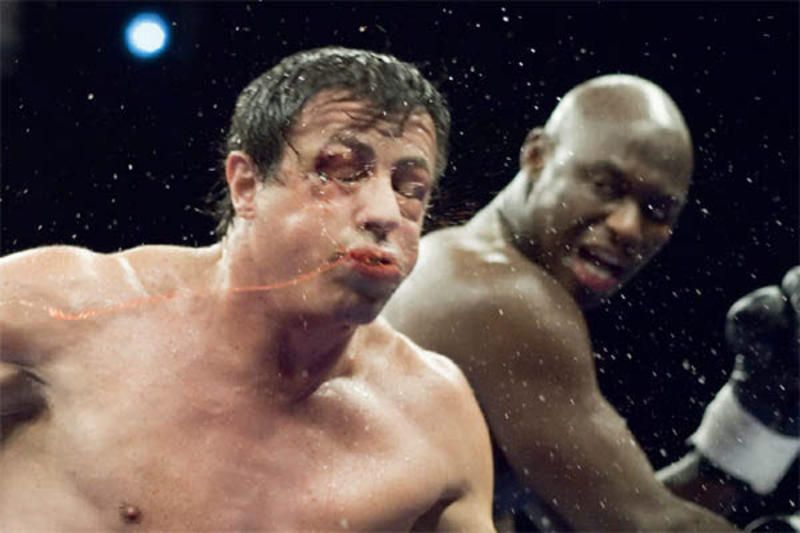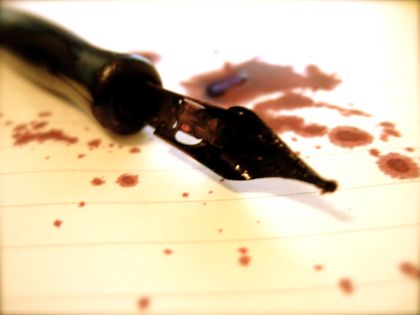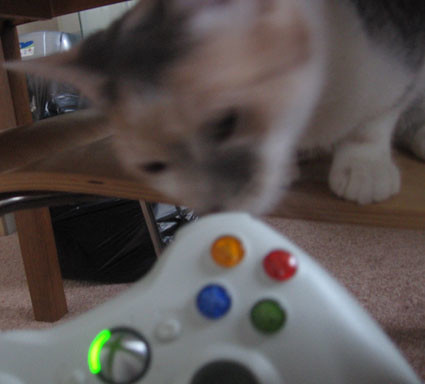
It’s been years since I’ve seen Rocky. I know, as someone who even tangentially identifies as a Philadelphian, I should watch it more often. But I remember Mickey. I remember him training Rocky, talking him up, telling him things about eating lightning and crapping thunder. In pretty much any story involving a fighter, the pep talks are meant to bolster the fighter’s confidence, before they step into the ring to take a few more punches to the face.
I’ve never, personally, been punched in the face. Not physically. Metaphorically, though, I’ve had my share of right hooks to the jaw.
And to be honest, I’m a better person for it.
I don’t mean that in the sense that I’m better than any of the people around me or any of you fine, wonderful strangers who’ve happened upon this blog. I mean that in the sense that I’m better than I used to be. By no stretch am I a perfect person. Hell, there are days when I struggle to just be good, or at least good enough. Good enough to hold down a dayjob, good enough to not suck at writing or gaming, good enough for a wife or my family or my cats to stick around.
This appreciation has come from rejection, and if I continue on this honest streak, I wouldn’t be where I am without it.
I’ve been told my work wasn’t good enough, that it didn’t live up to its promises, that I failed in this aspect or that way. And I’ve improved because of it. It’s tempting at times to let such things overwhelm one’s psyche, to let the negativity wash away potential energy as sure as a skier slamming into a tree or an offensive jab leading to your jaw getting rocked by a counter-cross. I’m not up on boxing lingo, so if I’m wrong please don’t hit me not in the face.
Anyway. Writers. You’re going to get rejected.
It’s the way things go. Even if you go down the e-publishing route, you should pass your work in front of other eyes – test readers, editors, etc. Strangers, if at all possible. And more than likely they’ll call you out on something they don’t like. Don’t shy away from this. Don’t avoid it. Do not, under any circumstances, tell these fine people that “it’s MY work” and “you just don’t get it.” You will not advance as an artist if you clutch your work to your chest, run to your cave, and proclaim that it belongs to you and nobody else has any say on the matter.
You do that and my knuckles are going to itch to say hello to your chin.
What, do you think art is immutable? Do you operate under the notion that once a word is set down, it can never be changed? Is a painter or film director some sort of demigod whose works cannot be approached by mere mortals? Are games quantum-locked in the state in which we find them on the shelf or our hard drives, only changing behind the curtain of a developer’s studios when we aren’t watching them? Don’t be an idiot. I challenge any film critic to tell me that any cut Ridley Scott made of one of his films is worse than the studio’s theatrical release. The Anniversary Edition of Halo is not only a lot easier on the eyes but also helps expand some of the less solid story points of the universe, and in fact does its job so well I have had to re-examine my feelings on that franchise in general. It is a better product than the original, and only because they changed stuff in it. Minor stuff, to be sure, but stuff was changed nonetheless. Change is good. To reject change is to reject the notion that art is alive, or important, or even necessary.
Let me be clear on something before I wrap this up. I don’t think my opinion’s the only one that matters. This is not the word of Caesar being dispensed from on high onto the unwashed masses. This is one opinion from one ultra-geek who happens to have a semi-established corner of the forum to shout from while he’s pelted with things.
But the fact remains. Rejection happens, and as much as it hurts, it’s good for you.
So suck up the punches there, Rocky. Take a few shots to the face. Bleed a bit. It’s going to happen, so you might as well get used to it. That’s not the important part.
The important part is you punch back. You don’t mind the pain. And you get back up.
If you can keep doing that, no matter how many times it happens, no matter how long it takes, no matter how much it hurts or how broken and lost and lonely you feel, you’ll make it.
As Chuck Wendig says, writing (or game development, or art, or anything that involves breaking free of cubicles and TPS reports and HR looking over your shoulder and long-ass meetings) is putting a bucket over your head and smashing it into a brick wall over and over and over again.
It’s you or the wall.






